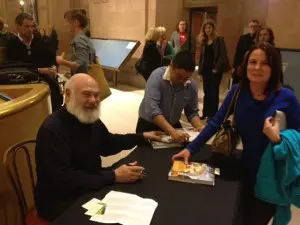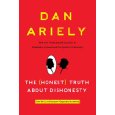Kensington in the Spotlight
February 22, 2015
Recently, I’ve had a few calls from friends around the country asking bluntly, “What the heck is going on in Kensington?”
For those of you who missed it, our little town has been the subject of some notoriety since it was revealed that an off-duty police officer ( and three other colleagues) drove to Reno, NV (about 3 hours) for a weekend of fun and promptly lost his gun, badge, handcuffs, and ammunition to a prostitute.
Journalistically, the best part of the story was how the gun was recovered the next day, when the woman’s pimp apparently shot himself during a dispute when he was attempting to pawn the items.
Our local police chief “investigated” the matter for 8 months but only suspended the officer when the story became public. As you might expect, the community was a bit upset at the chief’s delay. Over 250 folks turned out for a police board meeting on the issue.
He’s now our former chief, although the suspended officer is still on the force.
Kensington is a small upper-middle class community in the East Bay hills. Our major claim to fame, until now, was that Daniel Ellsberg lived here. Over 70% of the population have, not only college degrees, but advanced degrees. The community is off the beaten track, and most of us like it that way. There are no major roads that would lead anyone to come here, unless you were on the way to your home, and most of the time when you tell someone you live in Kensington the reaction is “where’s that?”
Plus, we pay a yearly assessment, so that we can have a police department of 10, dedicated to patrolling our streets to protect us from the rest of the world. We also have an excellent elementary school which makes this a great place to raise a family.
The spotlight that has been shining on us over the last few weeks, has been very uncomfortable.
I have no new information to reveal about what will happen next and most of you probably don’t want to know about the politics of a small, wealthy community in the Bay Area, but there are some things to note.
First, the chief and the 5-member police board to which he reports, have screwed up big time. The chief, who also acts as general manager, will no longer be serving us, and for the second time in ten years, we are looking for a new commander.
Second, a large part of the problem is based in the combination role the police chief is asked to fill. Police Chief and General Manager is just an untenable combination, which the board is finally looking into changing.
Third, a small group of dissidents is using the incident to further their own, long-standing goal of ousting the three majority board members. Additionally, they want us to combine our police force with the neighboring town of El Cerrito, which may make sense financially, but not from a public safety perspective.
This story will continue to play out over the next year. Hopefully out of the national or state-wide spotlight. My hunch is we’ll have a recall election, which will fail, and we will separate the two top posts in town, and then there will be a ballot initiative to combine our police force with our neighbor, which will also fail.
The whole battle will be quite acrimonious, and make for lots of local hand wringing, but in the end, everyone will go back to ignoring the our little town and we can all get on with our lives.
Dr. Weil Loses His Way
November 20, 2012
Dr. Andrew Weil’s latest book tour stopped in San Francisco last week. He’s on the road to promote his latest literary effort, a cookbook – True Food – based on recipes he cooks at home and are served in his emerging restaurant chain.
As part of his Weil Lifestyle campaign the book purports to establish a new healthy lifestyle and healthier recipes while rebutting the myth that ‘health food’ has to be bland or worse.
Dr. Weil was interviewed at Herbst Theater by fellow cookbook author Molly Katzen who spent an hour fawning of the integrative health guru while leaving it to the audience to ask controversial questions. Dr. Weil’s book offers recipes based on his own food pyramid which, while different from the hated FDA guide, leaves out very few foods that have led to the United States obesity epidemic.
In fact , Dr. Weil probably is a pretty good representative of the US population since he clearly doesn’t skimp on any meals. A doctor approaching obesity levels may not be the best spokesman for a healthy lifestyle.
Dr. Weil said he was also scouting sites for a new restaurant – one featuring good healthfood similar to the locations in Los Angeles, San Diego and Phoenix. The fact that the Bay Area has been a leader in the trend Dr. Weil promotes doesn’t seem to rate a mention even though places such as Cafe Gratitude, Planet Organic or Gather are way ahead of the good doctor.
Dr. Weil was asked about supplements and admitted that, aside from a daily multi-vitamin, most folks can get all the nutrition they need from a healthy diet. This does seem to question the range of supplements marketed and sold by Dr. Weil on his own website.
Dr. Weil also took a minute to chastise the assembled group for the failure of Proposition 37 the GMO labeling question of the November ballot. “How you could let that fail?” has asked.
No one rose to answer, but I would note there were several folks in the room who had worked very hard to get the proposal on the ballot and promote it’s passage. No doubt a few of them were a bit insulted that someone from Arizona, who did nothing to oppose the $50 million ad campaign put on by the Monsanto and Dow, would criticize their efforts.
Dr. Weil clearly does not oppose GMO food, preferring to wait for more evidence before branding it unhealthy. Of course, some folks would rather that it get proven healthy before allowing it in the food chain.
I’m afraid Dr. Weil has lost his way by promoting a food pyramid that would do little to improve the health of most Americans, selling suplements that he admits are mostly unnecessary and declining to oppose foods that have been shown to be unhealthy.
I’m sure it will do little to hurt his image or his income.
We Are All Dishonest
October 30, 2012
Happiness is Everywhere
April 5, 2012
Suddenly, it seems that we are consumed with the search for one of our ‘inalienable rights.’ It’s not that Americans just rediscovered the Declaration of Independence, or Will Smith’s 2006 movie, but rather, it seems to be the latest social science trend.
Consider it the replacement for behavioral economics the science that became popular after the book Freakonomics tried to explain how economics could explain human behavior. For a few years there was a new book out every month explaining why humans are irrational and how we could be led to do anything with the right incentive.
Now, it seems that happiness, and the apparently futile search for it, has reached the top of the grad student research list. Last month Harvard Business Review (subscription required) focused a whole issue on employee happiness; two weeks ago I received a brochure advertising a full day seminar offered in 8 convenient locations guaranteed to provide me with “effective ways to measure happiness.”
Daniel Gilbert’s “Stumbling on Happiness,” a 2006 best seller may have sparked the recent interest. Gilbert’s book is a well-written and very interesting explanation of how humans define happiness, what it is or is not, and a slightly depressing conclusion that the human mind may never allow us to truly understand what will make us happy. He offers some solace that, at least now that we understand how the human mind works, we will know why we can never find happiness.
Interestingly the writing style and reasoning of the book is quite similar to many of the behavioral economics books, such as “Nudge” or Dan Ariely’s “Predictably Irrational.”
Andrew Weil’s “Spontaneous Happiness,” takes a different approach, offering suggestions for helping us find happiness. His is a less scientific approach and is more a lengthy essay on his own observations about happiness. He offers a number of suggestions of helpful methods to help his readers achieve a state of happiness.
If you are familiar with Dr. Weil’s work you will not be surprised that his suggestions run range from yoga and mindfulness meditation to more secular pursuits such as social activities or laughter. He even offers an ‘8-week Program for Optimal Well Being.”
Dan Buettner, author of “Blue Zones’ which explores circumstances surrounding the lives of the world’s oldest citizens has offered “Thrive – Finding Happiness the Blue Zones Way.” He investigates (and I use that term very loosely) the places around the planet judged to include the happiest populations according to annual surveys.
With apologies to Walt Disney, among the happiest places on earth appear to be parts of Mexico, Denmark, Singapore and San Luis Obispo, California. Even Buettner doesn’t seem to believe that any place in Mexico could be judged happy given the violence, but he doesn’t let that stop him from interviewing the population in an attempt to compile a list of factors that will lead to happiness.
After his trips, Buettner develops a list of “Finding Ways to Thrive” which includes items such as ‘put friends first,’ ‘grow a garden’ or ‘get into teaching.’ While many of his suggestions are valid, and some may apply to a lot of readers, his list is so long and tries to be so inclusive that it’s almost useless in trying to help anyone find happiness.
I have no idea what the answer is. Even Gilbert notes that happiness may be impossible to measure because we all use a different scale. A good friend of mine once suggested that unhappiness is caused by expectations not meeting reality. Maybe the answer lies in taking a more honest look at assessing what your own reality is. And that’s something a coach can help you figure out.



